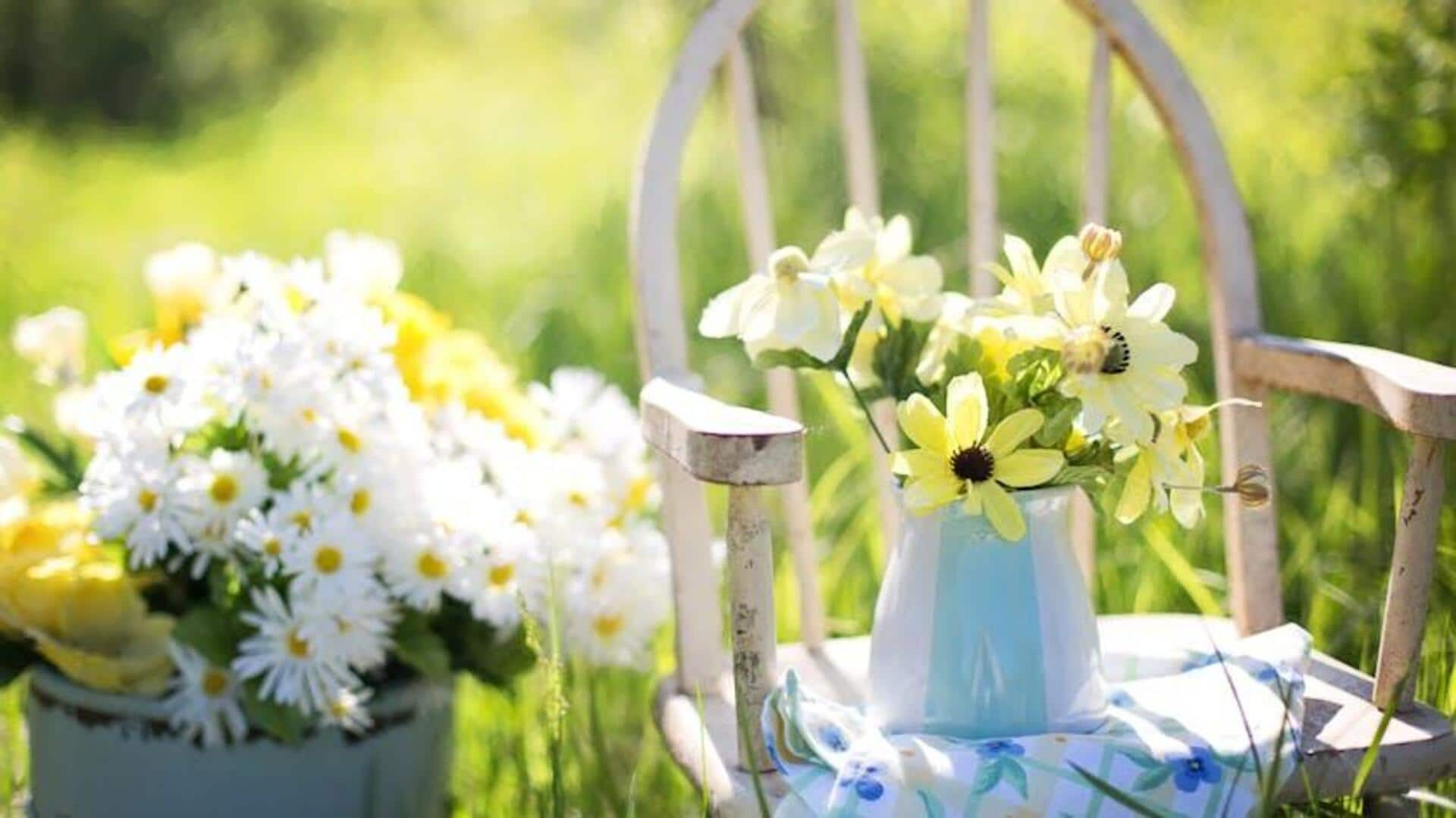
How to build an eco-friendly garden
What's the story
Creating an eco-friendly garden is a rewarding endeavor that benefits both the environment and your well-being. By focusing on sustainable practices, you can cultivate a garden that thrives without harming the planet. This approach not only conserves resources but also promotes biodiversity, and reduces waste. Whether you're a seasoned gardener or just starting out, these practical tips will guide you in building a green oasis right in your backyard.
Native plants
Choose native plants for your garden
Selecting native plants is essential for an eco-friendly garden. These plants are adapted to the local climate and soil conditions, requiring less water and maintenance. They also provide essential habitats for local wildlife, including pollinators like bees and butterflies. By choosing native species, you support biodiversity and create a resilient garden that can withstand environmental changes more effectively than non-native varieties.
Water conservation
Implement water-saving techniques
Water conservation is essential in sustainable gardening. Think about putting up rain barrels to collect rainwater for irrigation. Drip irrigation systems are another effective means of providing water directly to plant roots, reducing evaporation loss. Mulching around the plants retains soil moisture and reduces the frequency of watering. These techniques would not just save water but also reduce utility bills in the long run.
Composting benefits
Composting: Turn waste into nutrients
Composting is arguably the best way to recycle organic waste into nutrient-rich soil amendments. You can easily turn kitchen scraps like vegetable peels and yard waste such as leaves into compost without much hassle. This way, you not only cut down on landfill waste but also enrich your garden soil with essential nutrients, helping plants grow healthy without chemical fertilizers.
Beneficial insects
Encourage beneficial insects naturally
Attracting beneficial insects is key to keeping a balanced ecosystem in your garden. Ladybugs, lacewings, and some wasps keep pest populations in check naturally by feeding on harmful insects such as aphids and caterpillars. Planting flowers such as marigolds or daisies could lure these helpful creatures to your garden, eliminating the need for chemical pesticides.
Sustainable tools
Use sustainable gardening tools
Opting for sustainable gardening tools goes a long way in being eco-friendly. Go for tools made of recycled materials or sustainably sourced wood handles instead of plastic ones, wherever possible. This minimizes environmental footprint during manufacturing processes. It guarantees longevity over time as opposed to regular options available today. These are available at similar price points across diverse markets worldwide.